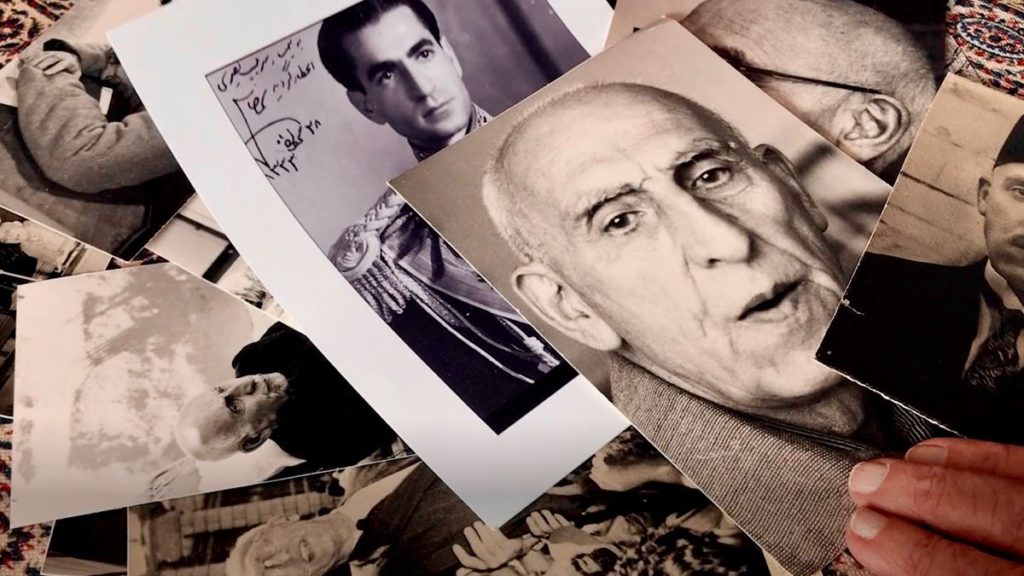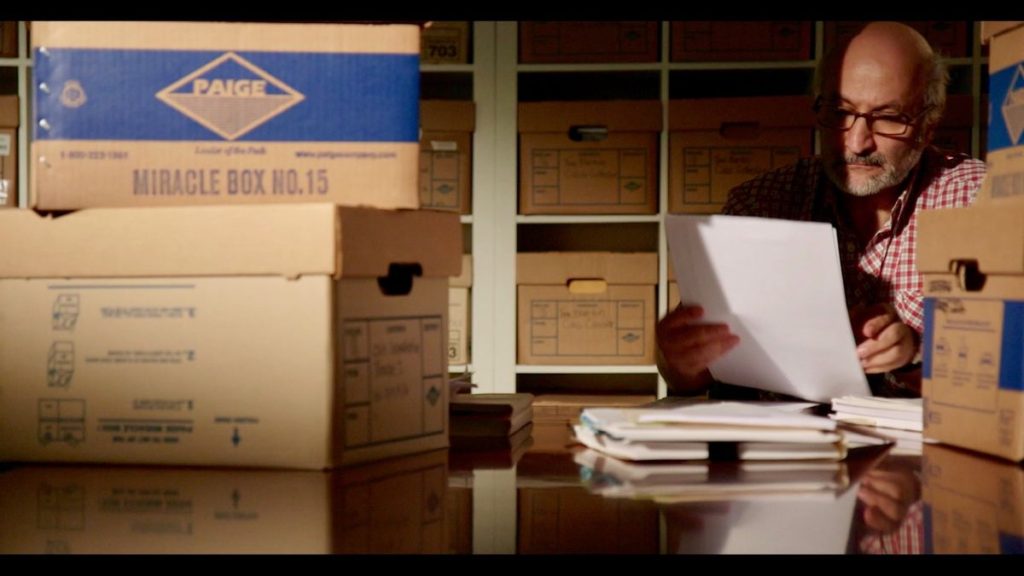
The Cold War espionage documentary Coup 53 brings astounding new source material to the history of the 1953 coup which replaced the democratically elected Premier of Iran, Mohammad Mosaddegh, with the Shah.
The key to the success of Coup 53 is that filmmaker Taghi Amirani uncovered troves of never-before seen source material. Amirani brings us oral histories of Iranian witnesses to the coup, including a play-by-play from Mosaddegh’s head of security. He adds a video interview with the last surviving Iranian coup plotter, an especially cadaverous and repugnant individual. There are also boxes of more recently-declassified CIA documents.

But, most essential are the tapes and transcripts of interviews for a 1970s BBC documentary. The testimony of Norman Darbyshire, the British spy who masterminded the coup, was cut from the BBC doc, but Amirani found an uncensored transcript. Ingeniously, Coup 53 reconstructs Darbyshire’s interview in the same room in London’s Savoy Hotel, with the same camera operator present (!) and actor Ralph Fiennes reciting Darbyshire’s actual words.
Why did Darbyshire spill the beans? He may have resented that CIA agent Kermit Roosevelt (TR’s grandson) exaggerated his role as a last minute bag man, when Darbyshire had laid the groundwork for years and was the real instigator.
Although the UK’s involvement has never been officially acknowledged by the UK government, everyone has known about it for decades. There’s even a clip in Coup 53 of Richard Nixon explaining it on TV in the 1970s or 1980s. But this is very personal to Taghi Amirani, and he puts great import on the smoking gun – an interview with the British spy who designed and directed the coup.
Although I think that Amirani oversells the proof of British involvement, there is is lot of exciting new stuff for the moderately informed rest of us. For example, we get a deeper-than-usual dive into Mohammad Mosaddegh himself, a man many of us have only seen as a victim of Western over-reaction to communism. We also learn that:
- Harry Truman opposed the regime change, but newbie President Ike was persuaded by Wall Street’s Dulles brothers to green light the coup.
- The CIA was walking away after an initial coup failure.
- After the UK did the dirty work, the US got the most influence with the Shah, and, with Israel’s help, set up the Shah’s brutal and hated secret police, the Savak.
From Mosaddegh’s nephew, we learn about Mosaddegh’s final years under house arrest, his last secret joyride through Tehran and his unusual dining room burial.
There’s one stunning What If moment – revolutionary Iranian President Abolhassan Banisadr explains that after the first coup attempt failed, Mosaddegh had the list of all the coup plotters. Had he executed them all immediately, there would have been no coup in 1953, no revolution and Hostage Crisis in 1978 and today Iran would be a stable, 70-year-old Muslim democracy in the Middle East.
Coup 53 is directed by Taghi Amirani and its editor, Walter Murch. The Iran-born and UK-educated Amirani is the researcher and on-camera interviewer. Murch is probably our greatest living film editor and the person who invented the entire field of movie sound design in the 1970s.
Coup 53 is available to stream on Virtual Cinema; I watched it at the Roxie.
